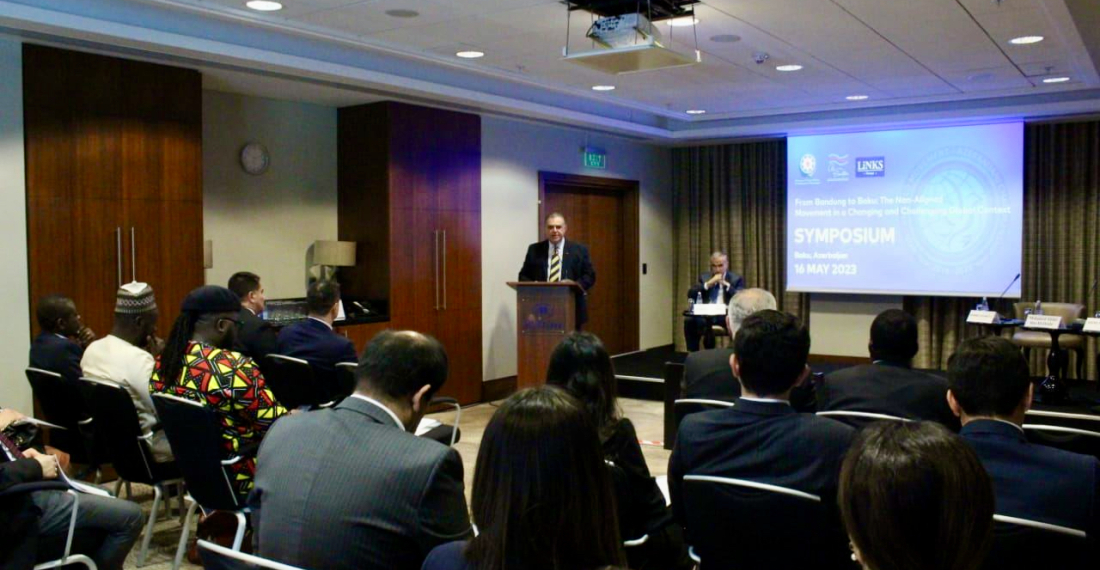The international symposium "From Bandung to Baku: The Non-Aligned Movement in a Changing and Challenging Global Context" was held on Tuesday 16 May at the Hilton Hotel in Baku, Azerbaijan. The symposium was organised by the Azerbaijan Ministry of Foreign Affairs, the Centre for the Analysis of International Relations, in association with LINKS Europe. Azerbaijan currently holds the rotating chairmanship of the Non-Aligned Movement (NAM), which groups together 120 countries.
Participants included experts from think tanks and academics, as well as diplomats from NAM member states as well as from European countries. LINKS Europe in association with Leiden University, will host a second event with the same theme in the Netherlands in October.
Speaking at the opening of the Symposium the Director of LINKS Europe, Dr Dennis Sammut said that the current challenges in the global situations has given the Non-Aligned Movement a renewed sense of purpose. Dr Sammut said that the Russian invasion of Ukraine presented a serious challenge not only to European countries but to the entire international community. Most countries in the global south had recognised this, and one could see this in the pattern of voting in the UN General Assembly on resolutions condemning the Russian aggression. But a minority of countries had not, and were on the wrong side of history. The Russian invasion had been a wake-up call in Europe, including on the need for a better dialogue between Europe and the Global South. The Non-Aligned Movement was an important partner with whom Europe should be actively engaged in dialogue on Ukraine and other important issues. He called on the think tank community in Europe and in the Global South to fill the gap that exists in this dialogue.
Other speakers in the symposium included Mr. Mohamed Abd El-Hay Al-Orabi, Chairman of Egyptian Council for Foreign Affairs and Former Egyptian Foreign Minister; Dr. Farid Shafiyev, Chairman, AIR Center (Baku); Director of the Center for Strategic Studies of the Institute of International Relations of the Ministry of Foreign Affairs of Turkmenistan; Dr. Maja Vodopivec, Assistant Professor, Leiden University, Netherlands; Dr. Ashraf Mohamed Keshk, Director of the Strategic and International Studies Program at the Bahrain Center for Strategic, International and Energy Studies, and others.
source: commonspace.eu
photo: Dr Dennis Sammut, Director of LINKS Europe, addressing the symposium "From Bandung to Baku" on 16 May 2023. Picture courtesy of Trend News Agency, Baku.






